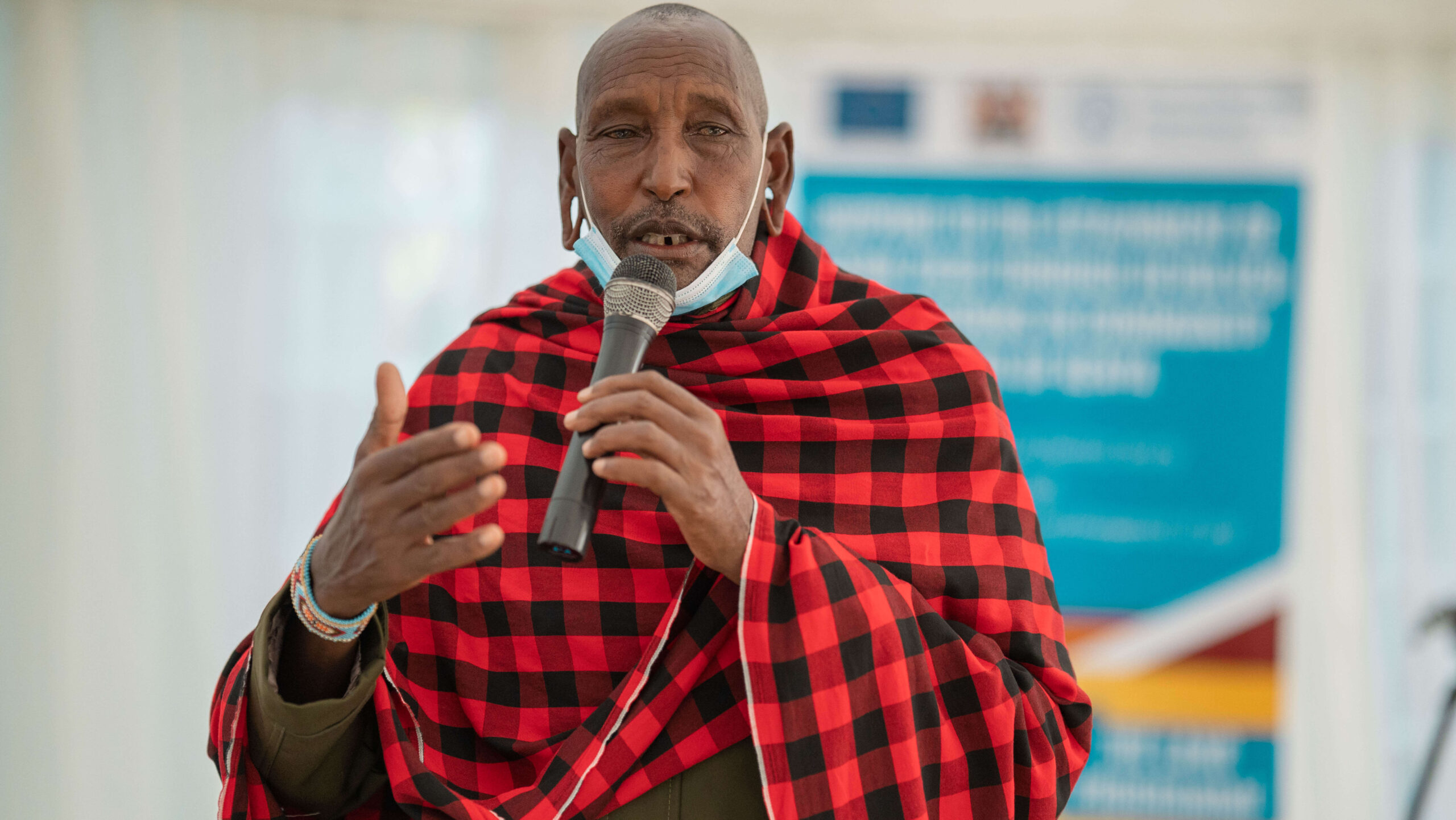Event Date


Event Details
Event: Annual AJS Conference


June 20, 2022


Event Location
Tangaza University College
Nairobi

Event Cost
Age: 18 & Above
Background to the 1st National Conference on Alternative Justice Systems
The implementation of the Alternative Justice Systems Policy by Kenyans and stakeholders requires a clear and concise understanding of informal and traditional justice system, their mandate and how they must be used to enhance access to justice. This will enable the NaSci AJS achieve one of the key mandates which is to rally actors in social, philanthropy, religious, judiciary and cultural life to emphatically and continuously support the AJS mechanisms, prioritizing the three typologies identified by the AJS Policy and its underlying linkages.
Pursuant to its mandate, the NaSCI-AJS therefore has a task of rallying different stakeholders on the policy and coming up with practical ways of implementing the AJS models of: AJS-Autonomous; Court annexed; and Third party, as significant drivers and/or actors to effectively complement the Judiciary in delivery of Justice services. The AJS models as provided for in the Policy have provided a media of implementing the Constitution by the people in a transformative mode by transforming the justice spaces and ensuring that there is justice for all. Through this, the local citizens have been put at the center of governance, protecting the minority culturally, religiously etc., and ensuring their civil rights are not infringed on. The participation in a multi stakeholder forum is key in hearing the voices of the justice seekers and their recommendations in enhancing implementation of the AJS Policy.
Lastly, the Committee has adopted a devolved governance system to rally actors at the county level through development of County Action Plans (CAP) as a reference tool for implementing AJS policy. The CAPs can only be implemented effectively by enhancing platforms where stakeholders are able to have a discourse on the various typologies being implemented in the counties while learning on the best practices to adopt. Social transformation and justice are only possible when people of diverse opinions and life experiences are able to come together for respectful and constructive conversations and then encouraging and fostering a continuing dialogue.
Rationale
The Chief Justice, Martha Koome, during her maiden speech, called on everyone to bear their own weight and be agents of ensuring that they are champions for justice. She envisioned everyone to be justice actors as must as they are justice seekers so that matters are resolved out of court. The Alternative Justice Systems (AJS) position themselves as a framework, practice and mode of governance in Kenya. While the practice of AJS has gained some sort of supremacy, it remains slippery, oscillatory and living amongst many actors. For this reason, AJS has become a central component in judicial strategy to foster access to justice as well as a mode of governance that has the potential to enhance everyday relationship and everyday justice amongst many Kenyans. AJS is about the supremacy of the people, and that it is promoting diversity in the Country. It is encouraging resolution of disputes in an amicable manner to foster good human and interpersonal relations and for the communities to live as a united nation. Diversity in the sense that ethnic communities must not necessarily and entirely be made up of people who live around the area. Localities are now becoming cosmopolitan due to the inter-marriages, inter-settlements and commercial transactions. To foster this inclusivity, the logic of AJS is every day way of life as opposed to Alternative Dispute Resolution which encompasses more of legal reasoning. A national conference is important to ensure public participation of key actors in the implementation of the AJS policy framework and a common goal of positioning the citizenry in their role in changing the justice narrative. Secondly, because the AJS framework is a shift on governance in which the justice seekers directly contribute to justice, it is necessary that stakeholders understand the need to support the establishment and implementation of an effective AJS framework of governance. In a real sense, therefore, the 1st National Conference on AJS will change the conversation about justice in Kenya while enhancing social transformation of justice. It will not only loop into the justice conversation the participants and users of mechanisms where the majority of disputes are actually resolved but it will also vernacularize the progressive language of human rights and constitutional values and introduce it to these spaces where justice is negotiated, shaped and re-shaped by the majority of Kenyans who are the agents of Justice. This conference is a first important step in not only taking stalk of the implementation of the AJS Policy but also in promoting other means of dispute resolution as commanded by the Constitution, while promoting the values of the Constitution including the Bill of Rights, National Values and the Agency Theory. Hosting the Conference at the learning institution is important because the University is a vehicle, to be used to influence the debate on Justice Theories, not as written riles but as lived realities of the people. It also provides a medium for critical thinking on social transformation and access to justice. Lastly, the University becomes the center for the Committee to realize one of its mandate which is rally actors in social, philanthropy, religious, judiciary and cultural life to emphatically and continuously support the AJS mechanisms, prioritizing the three typologies identified by the AJS Policy and its underlying linkages. To this end, the University produces knowledge while turning the practices into learning opportunities.

Objective 1
Locate AJS in the vision of the Chief Justice of social transformation; unpack, interrogate and critique it.

Objective 2
Use the conference as a prompt to produce new jurisprudence and demosprudence on AJS– legal and intellectual rational thought who are organic intellectuals in the community and are not jurists. The same must have anchorage in the constitution and provides cover in the constitution.

Objective 3
Rationalize different practices of AJS both in courts and outside courts. Providing a comprehensive way of understanding how AJS can be practiced for optimal gains.

Objective 4
Address the AJS discontents through theorization of human rights framework in AJS. Ways of mitigating the supposed deficiencies of human rights practice in AJS practice and thoughts.

Objective 5
Prompt serious thoughts about the use of AJS as a tool to introduce a justice discourse that debates the emancipatory potential of AJS as a tool for societal transformation.
The Challenge
The expected outcomes of the national dialogue include: ●Valuable feedback/recommendations/discussions on the proposed framework of AJS in Kenya ● Valuable suggestions on an AJS policy framework including a policy, standards, guidelines and a possible legal instrument. ● A model of interaction and dialogue among the multiple justice systems in Kenya ● Exchange of jurisprudence on implementation of AJS Policy

The expected outcomes of the national dialogue include:
- Valuable feedback/recommendations/discussions on the proposed framework of AJS in Kenya
- Valuable suggestions on an AJS policy framework including a policy, standards, guidelines and a possible legal instrument.
- A model of interaction and dialogue among the multiple justice systems in Kenya
- Exchange of jurisprudence on implementation of AJS Policy
The National Steering Committee on Implementation of the Alternative Justice Policy (NaSCI-AJS) was gazzetted by the Hon. Chief Justice David Maraga as a multi- stakeholder Committee to spearhead the implementation of the AJS Policy.
Detail Info
Papers and Reports
Subscribe
Be the first one to receive latest updates.

